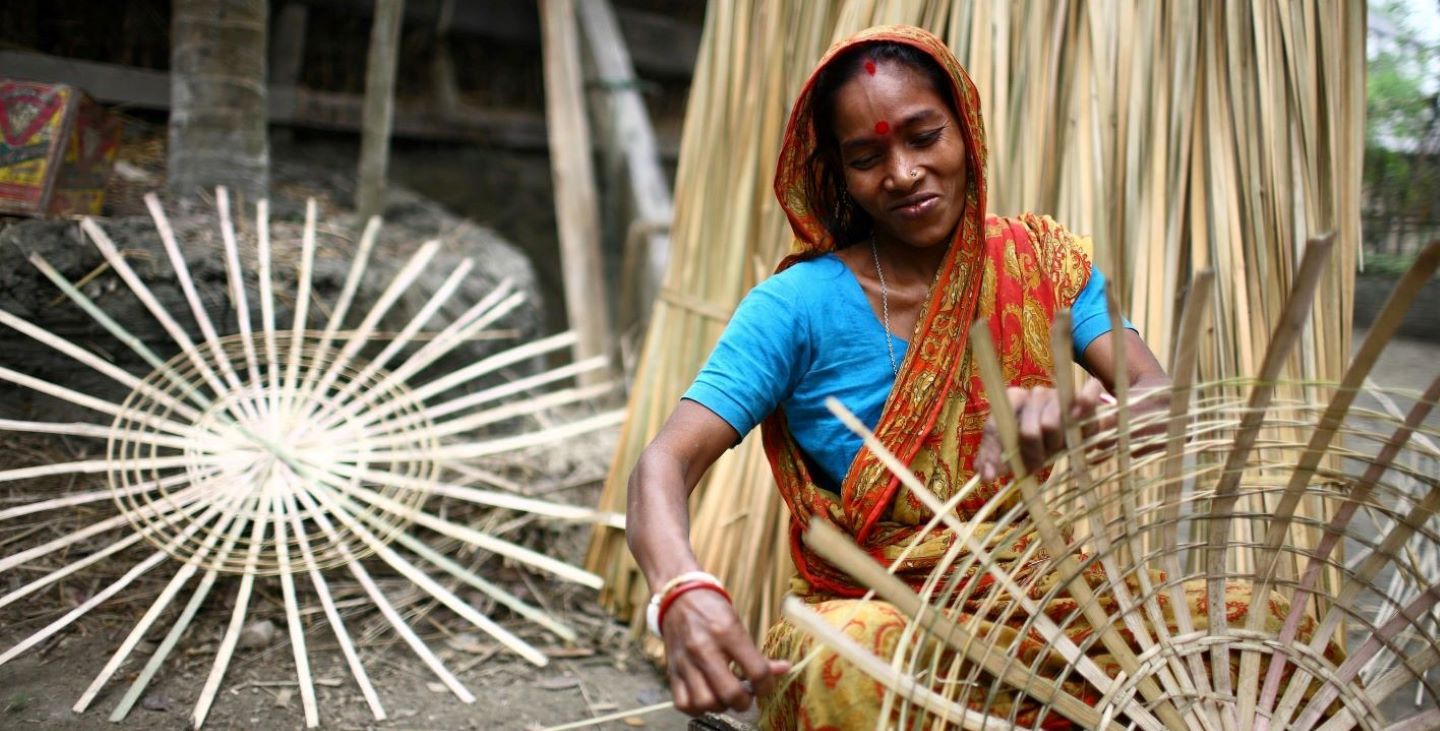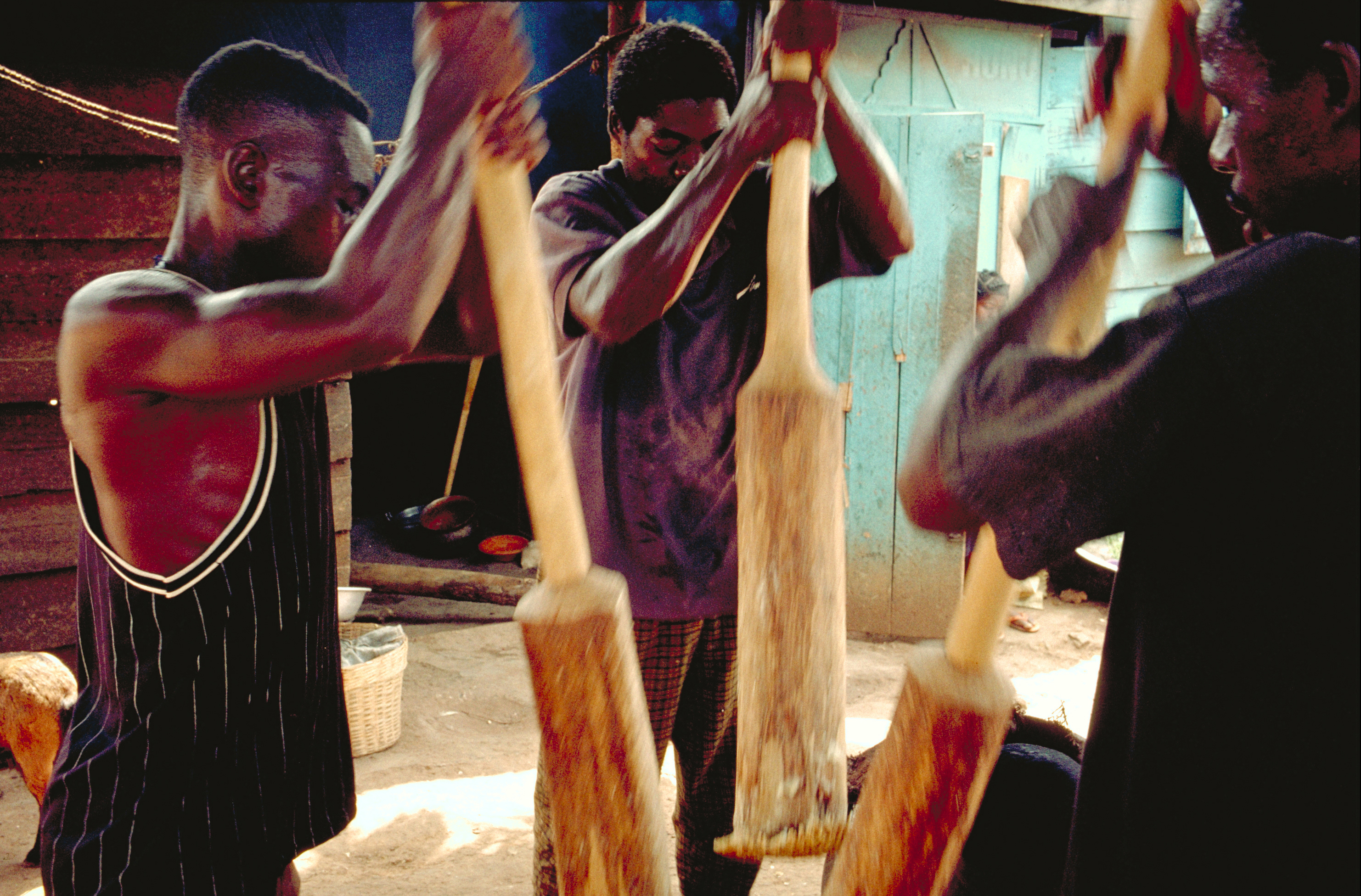Five decades of rural transformation: IFAD's greatest successes
IFAD Asset Request Portlet
Asset Publisher
Five decades of rural transformation: IFAD's greatest successes
Estimated reading time: 5 minutes
The 1970s was a decade of turmoil. Across the world, food shortages were causing widespread famine, malnutrition and countless deaths. There was no question: the world needed long-term solutions to address the structural problems around poverty and food production.
Born out of necessity, IFAD was founded in 1977. Since then, it has enabled millions of rural people to overcome these challenges, lift themselves out of poverty and build better futures for their communities.
We look at some of IFAD’s biggest successes over the years.
1980s: Small investments for big gains

Microfinance is a popular buzzword today. But back in the 1980s, IFAD was one of the first international institutions to invest in this simple but revolutionary idea spearheaded by Grameen Bank. By giving the poorest people access to small loans, they could lift themselves out of poverty.
From 1981 to 1995, IFAD provided capital to Grameen Bank in Bangladesh, helping to bring much-needed finance to remote areas and eventually covering the whole country. The bank was awarded the Nobel Peace Prize in 2006.
1980s–1990s: Killer bugs and bug killers

In the 1970s, the mealybug devastated fields of cassava in Africa, threatening the food security and livelihoods of the continent’s poorest rural people.
Instead of expensive and potentially hazardous pesticides, IFAD-funded research with the International Institute of Tropical Agriculture identified a simple, natural and cost-effective solution: a tiny Paraguayan wasp that was a natural predator of the mealybug.
Biocontrol worked. By 1994, farmers had reaped US$ 4.5 billion in benefits from an investment of US$ 27 million in control measures. And countless people were protected from hunger.
In 1988, another threat to Africa’s food security emerged. A shipment of imported livestock had brought the dreaded New World screwworm fly to Libya. Their larvae burrow through flesh, often leading to death. The parasite risked devastating livestock around the Mediterranean and potentially infecting Africa’s remarkable wildlife.
IFAD helped design and fund a FAO-led biological programme in which millions of male flies that had been treated with radiation were released from aeroplanes to mate with wild female flies. This would prevent the eggs from hatching and the population would die out. By 1992, the New World screwworm had been eradicated from North Africa.
2000s: Waste not want not
Rural people are often in an energy double-bind, as fuel can be both expensive and polluting.
Until the early 2000s, rural people in Guangxi Zhuang, southern China, burnt firewood and coal for cooking. This stripped the lush hillsides and forced women to spend much of their days collecting fuel and cooking over toxic fires. Then, in 2002, a ground-breaking IFAD project changed everything.
The Guangxi Integrated Agricultural Development Project helped 30,000 rural households use biogas digesters: tanks in which animal waste turns into clean natural gas. While burning biogas still produces carbon dioxide, this is far less potent than the methane emitted by naturally decomposing livestock waste. Moreover, once the gas had been produced, what remains is high-quality fertilizer.
The project’s success catalysed others. By the end of the decade, 2.73 million biogas tanks had been built, reaching a third of rural households in Guangxi.
In 2012, IFAD took the idea to Africa, where flexi-biogas digesters were piloted as an inexpensive portable system that was designed to fit local needs in Kenya and Rwanda.
2000–2010s: Simple solutions to complex problems

Sometimes, thinking small can lead to big results. Drip irrigation delivers just the right amount of water to each plant and can be a lifesaver for farmers in dry areas. But the set-up costs are often prohibitive.
The IFAD-supported Scaling up Micro-irrigation Systems project made irrigation equipment affordable and available in Guatemala, India and Madagascar by building local supply chains in unlikely ways.
For example, homeless people in Madagascar collected used flipflops and turned them into essential parts for water pumps. Not only did they earn an income, but farmers got cheap and effective irrigation equipment. Over 30,000 farmers in the three countries improved their food security and saved water.
2010s: The private sector plays its part

In the 2010s, two of the world’s best-known food companies, Heinz and Mars, joined the fight against rural poverty and food insecurity.
In Egypt, the government initiated a programme to solve two problems in one go: produce more food by reclaiming desert land for farming while providing young graduates with land and employment. But turning the desert green turned out to be the easy bit: the real challenge was accessing buyers for the food these reclaimed lands were producing.
The IFAD-supported West Noubaria Rural Development Project brokered deals for farmers to supply produce to 56 private companies. Among these was Heinz, which would provide farmers with quality seedlings and, come harvest-time, purchase 6,000 tonnes of tomatoes for its famous ketchup.
In Indonesia, IFAD’s READ project brokered an agreement between Mars Incorporated and the government, helping to alleviate government worries that a private company might exploit farmers, as well as private-sector concerns about government inefficiencies.
Through the deal, cocoa farmers learned new ways of caring for their trees to produce more and better cocoa, doubling their yields. In 2017, Mars and IFAD expanded their successful collaboration to other countries.
2020s: Sustaining success
IFAD’s successes stem from its commitment to innovation, listening and responding to the needs of rural people.
Today, programmes, like ASAP+, tap into decades of knowledge and global expertise to help the poorest farmers adapt to climate change and build resilience.
In this decade of polycrisis, we’re asking our partners to continue to contribute to IFAD’s vision and invest in small-scale farmers – so rural communities all over the world can keep thriving for decades to come.
Publication date: 04 July 2023